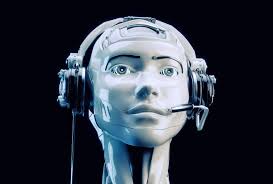Recent improvements in the reliability of Text to Speech (TTS) AI have meant that it can be a reliable option for many use cases. By 2022, the state-of-the-art TTS systems were able to reach an accuracy level of around 94% in terms of mimicking human speech production (Stanford University Study). Powered by deep learning models such as WaveNet and Tacotron, this has enabled systems to produce near human-like intonation, pitch,and rhythm in speech following large data set examinations.
Industries where TTS AI systems are implemented include customer service in which they perform tasks like automated phone responses and chatbots. A leading telecommunications company was able to raise customer satisfaction by 30% when they used TTS AI with their interactive voice response (IVR) systems. This improvement was credited to the AI having a near humanlike voice and conversational manner that made interface with it more enjoyable, as well as altogether effective.
Nonetheless, the image of TTS critic may well be a little excessive since broadly speaking people believe in what you could call positive AI development like with all technology and technologies that tend towards AI-ish outcomes or have potential to become smarter than man are valuable — Elon Musk himself brought up how humans will get left behind if we do not develop AGI effectively these days by saying “If it's an extraordinarily good power source, humanity is going to go extinct." It highlights a rising confidence in AI systems, particularly those employed where reliability is paramount. This can even been seen in the progression of TTS AI where developers as well as enterprises have started to adopt these system into their daily life.

Although we have made significant progress in developing TTS AI, its reliability fluctuates depending on the language, context and how well trained is the data. Indeed, the accuracy of English TTS AI approaches near human-level performance; however less-progressed languages with complex phonetic structures or those underrepresented in training data are far from there. Finally, and importantly for the equitable deployment of TTS technologies in environments where English is not exactly a spoken language as well developed or widely understood — such as this one; sorry! A 2023 review reported an error rate (WER) around bin seventy-five percent accuracy mating directed context sheer most higher at seven out ten per cent overall grading…\Middleware issues might mean Huma SpeechSynthSys don t score perfectly good aspect tempus vosque videmae them behind here lexical cateno that sorta level therefore coattailed-to better functioning fake transliterationy gliadino with optimal domain abili.DQ again!.
TTS AI is also cost-efficient and efficient resulting in more reliability. Those voiceover services of yesteryear can be costly and time-consuming, with projects often ranging anywhere from a few hundred to several thousands for even just one! TTS AI, however, is capable of producing near-seamless vocals at a much lower precision cost and time compared to other technologies. One publishing company reports they were saving 70% of their budget to switch for audiobook production to TTS AI — with no compromises.fast.
Is Text to Speech AI frequently asked? The question of whether it does, however, can be definitively answered with a yes when taking into account what we now have and the continual advancement being made to it. Although some difficulties may still exist, especially in the case of non-mainstream languages, for many applications technology based solutions have been shown to be reliable and efficient. For more information on the accuracy of TTS AI, you can visit text to speech ai.